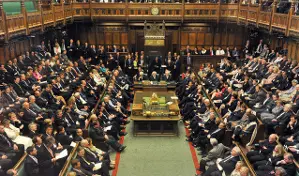 Members of the British parliament have launched an all-party parliamentary group (APPG) on e-cigarettes.
Members of the British parliament have launched an all-party parliamentary group (APPG) on e-cigarettes.
The group consists of 31 members of parliament (MPs) and peers, chaired by Mark Pawsey, Conservative MP for Rugby and Bulkington.
An event celebrating the launch was held at the Terrace Pavilion of the House of Commons on 17 December.
Lord Callanan of Low Fell, a former MEP (member of the European Parliament) heavily involved in the drafting of the EU’s Tobacco Products Directive (TPD) and a current member of the House of Lords, spoke about the process of educating law-makers on e-cigarettes and debating the best policy for regulating them.
After constituents explained the potential benefits to him, he pushed for freer regulation on e-cigarettes – or for them to not be covered by the TPD at all – but ultimately failed, he said.
He said he held high hopes that the APPG would be able to facilitate future UK regulation on e-cigarettes.
However, the group will have minimal activity in the run-up to the UK general election in May 2015, according to consultancy Abzed, which organised the APPG. The group plans to host three or four events over the first five months of 2015 before attempting to shift into a higher gear post-election, a spokesperson added.
Attendees at the House of Commons today were cautiously optimistic – welcoming the group but waiting to see whether it would be an active and useful group, or one that ends up lying dormant. Others were worried that it might be too one-sided – largely acting as a conduit for pro-e-cig lobbyists to reach the ears of government.
APPGs are cross-parliamentary groups on specific interests, which have no official status but must comply with rules regarding transparency of funding.
What This Means: The formation of the APPG is a positive sign for the sector insofar as it shows that e-cigarettes are increasingly on the minds of British law-makers. But as the group admits, what happens next will largely be informed by the general election.
Currently, according to Abzed, there is a good mix of pro-e-cig and more sceptical MPs and peers. Whether that mix remains post-election, when some of the MPs may have been voted out but newcomers with an interest in e-cigs may also have arrived will help to determine whether the APPG is successful – and whether it is an industry voice, an opponent or a neutral debating ground.
– Freddie Dawson ECigIntelligence staff
Photo: UK Parliament







